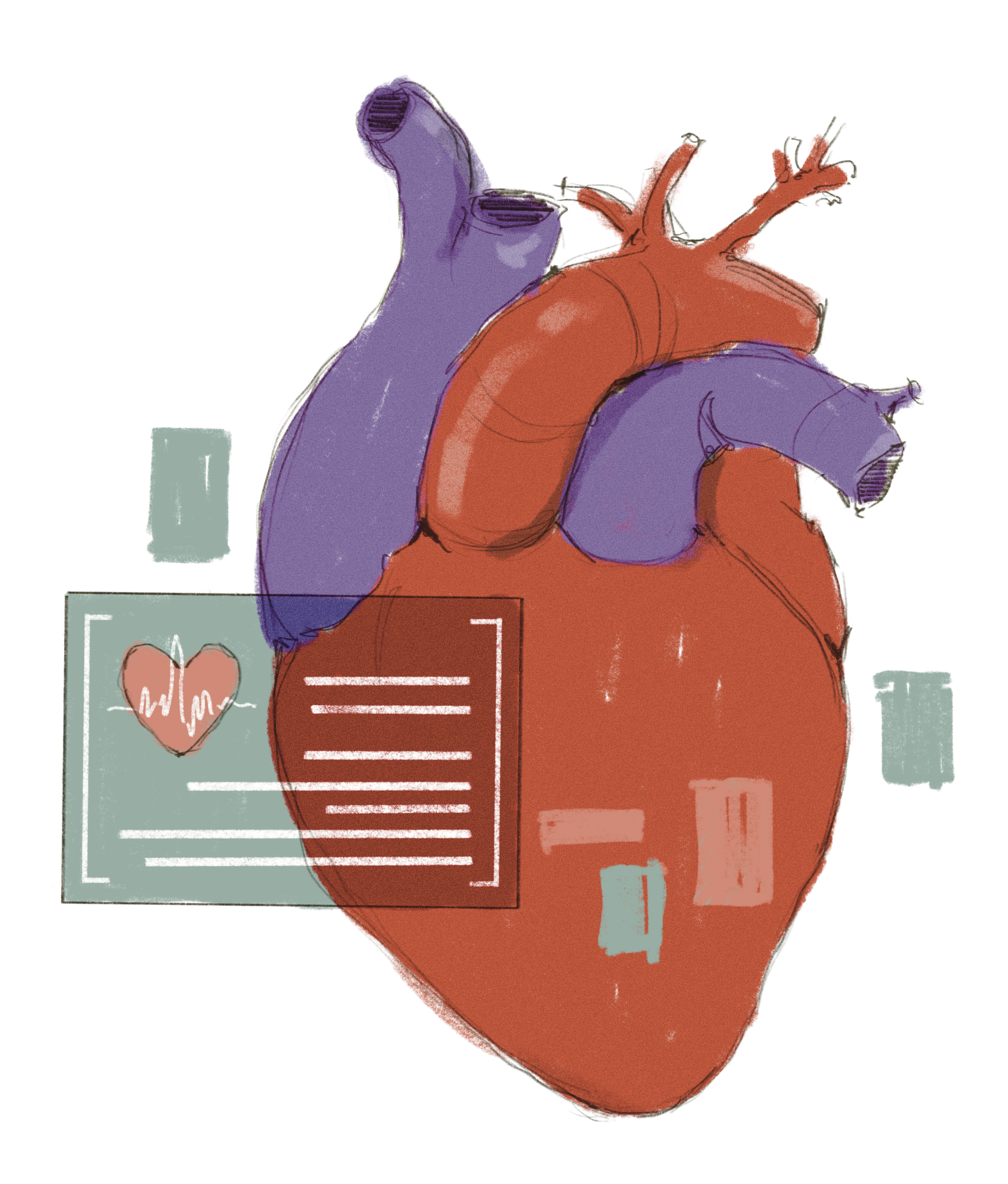
Zihao Lin, Contributing Illustrator
Up to 50 percent of heart failure patients who are discharged in the United States are readmitted within six months of leaving the hospital. To lower this figure and improve patient outcomes, Yale physicians have built an algorithmically-based system to guide clinical decision making.
Due to the complicated nature of heart failure, whether someone goes on a transplant list or is prescribed a specific treatment course, for example, is determined based on individual risk assessments. But studies have shown that most clinical predictors physicians rely on for these assessments perform “about as well as a coin toss,” according to Tariq Ahmad, medical director of Yale’s Advanced Heart Failure program.
Unsatisfied with these indicators, Ahmad collaborated with colleagues F. Perry Wilson, director of Yale’s Clinical and Translational Research Accelerator, and Nihar Desai, associate chief of the Section of Cardiovascular Medicine and associate professor of medicine, to build a new system that helps clinicians make better decisions when it comes to treatment for heart failure patients.
“Every patient should be treated with the best possible treatment option,” Ahmad said. “And if there’s no other option, that should also be made clear to the patient. If they have a 90 percent risk of death, you should tell the patient that.”
Ahmad and the other researchers worked together to harness the power of data-driven medical decision-making aids to deliver “Best Practice Alerts,” which are based on key information from patients’ electronic health records and compute calculated risks of one-year mortality — or a patient’s odds of dying within one year.
The hope is that these alerts, which are currently being tested within the Yale New Haven Health System as part of the Risk EValuation and its Impact on ClinicAL Decision Making and Outcomes in Heart Failure, or REVeAL-HF, clinical trial, will provide personalized treatment recommendations to physicians and ultimately yield improved patient outcomes.
“It can be hard for doctors and other providers to know what to expect when they’re seeing a patient at a single point in time, because patients can decline quite quickly, and it can be unexpected,” Wilson said. “When we set out to do REVeAL-HF, we had two main motivations. One was to see if we could design a predictive tool that would really accurately predict mortality in patients with heart failure, but I think even more importantly, we wanted to determine if the sharing of that information with the doctor makes a difference.”
Ahmad said that, currently, the imprecision of other clinical descriptors often leaves too much open to subjectivity. While physicians are highly skilled, there are limits to the level of objectivity that the human mind can retain in life-or-death situations.
Nathan Novemsky, professor of marketing and psychology and an expert in the psychology of judgment and decision making, told the News that even though the human brain is able to pick up on several important pieces of information, it is not exactly wired to extract the precise correlation between each different indicator and specific outcome in the same way that computational methods can.
Cardiac diagnoses often involve a complex mix of factors, and doctors need to look at many biomarkers to understand what is going on, Novemsky said. Though he acknowledged that there are a host of ways in which human doctors are far superior to artificial intelligence, when it comes to computing figures like risk factors, algorithms can often outperform most experts in ascertaining a patient’s diagnosis.
“There are just certain combinations of information that, when done intuitively, are just not as accurate as when done mechanically,” Novemsky said. “Excel, it turns out, can do it a lot better than the human mind [in those calculations].”
Because REVeAL-HF is a randomized trial, clinicians within YNHHS are being selected at random to receive these Best Practice Alerts. This will allow for the team to evaluate how patients who were treated based on these prognosis risk factors performed compared to those who did not.
In terms of patient recruitment, the REVeAL-HF system has been designed to automatically recruit those over the age of 18 who are admitted into the health system with blood tests that point to heart failure. The trial will end within the next couple of weeks, at which point the team will look at several endpoints to gauge the effectiveness of the alerts — including mortality rates, readmission incidence and length of hospital stay.
“[Through these alerts,] we’re hoping that heart failure patients are going to be discharged on better medication, that they’ll be referred to specialists more often and that this can lead to an increase in appropriate uses of therapies,” Ahmad said.
He noted the team has completed the enrollment of over 2,200 patients in one year — a rate he said is “unheard of.” The first patient was randomly selected for the trial in November 2019.
According to the Centers for Disease Control and Prevention, heart disease is the leading cause of death in the country for men and women.
Maria Fernanda Pacheco | maria.pacheco@yale.edu








